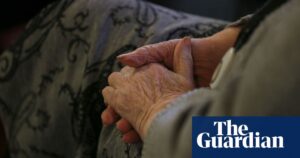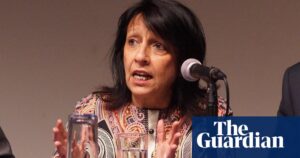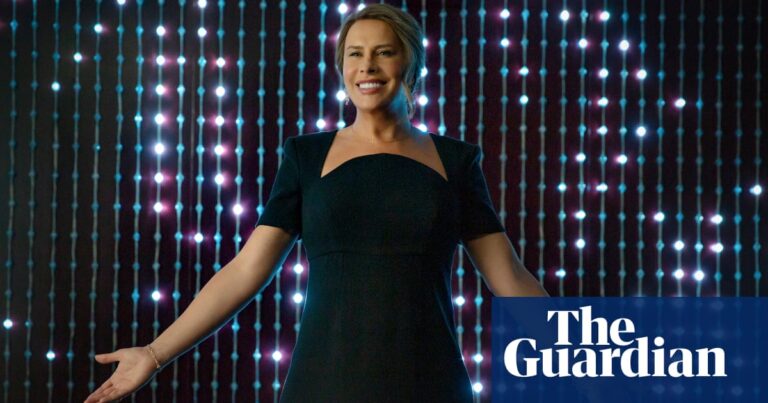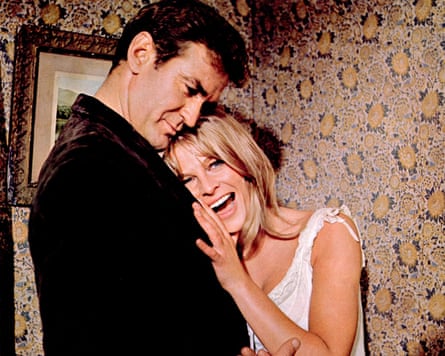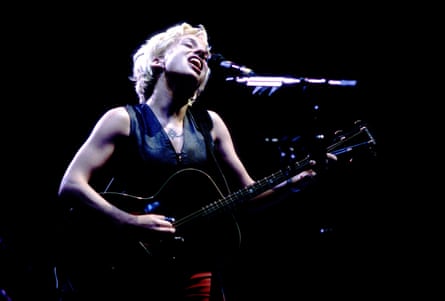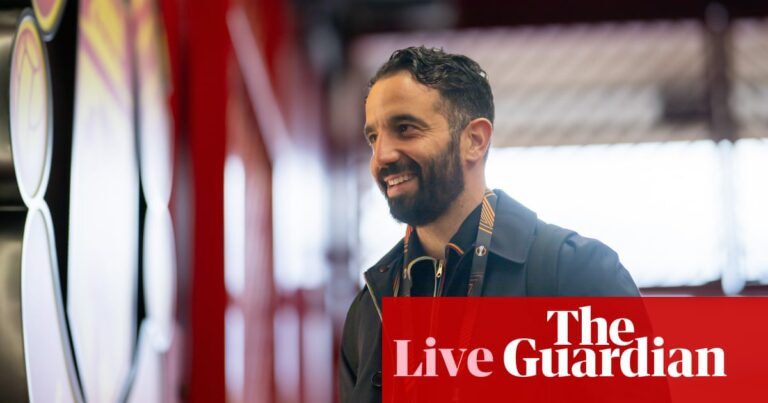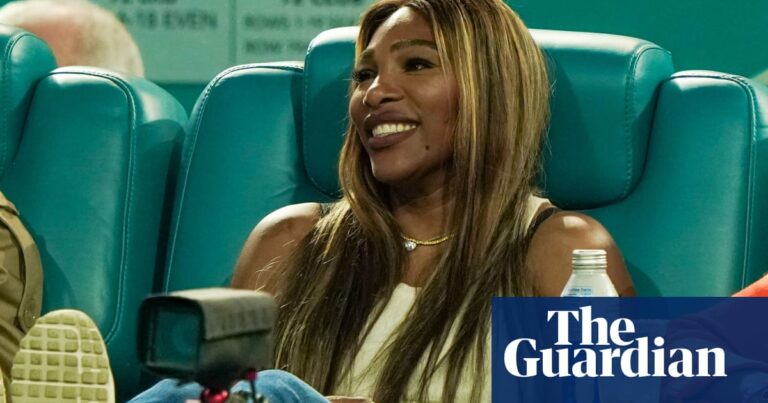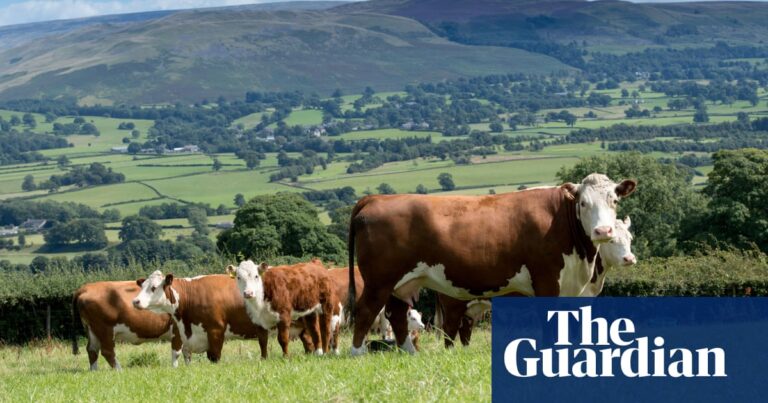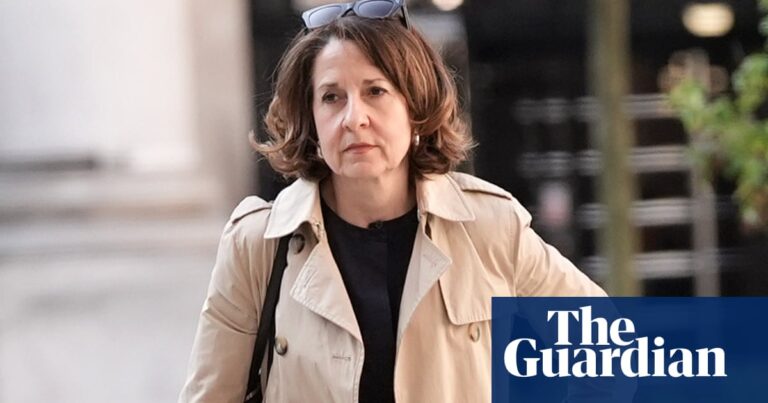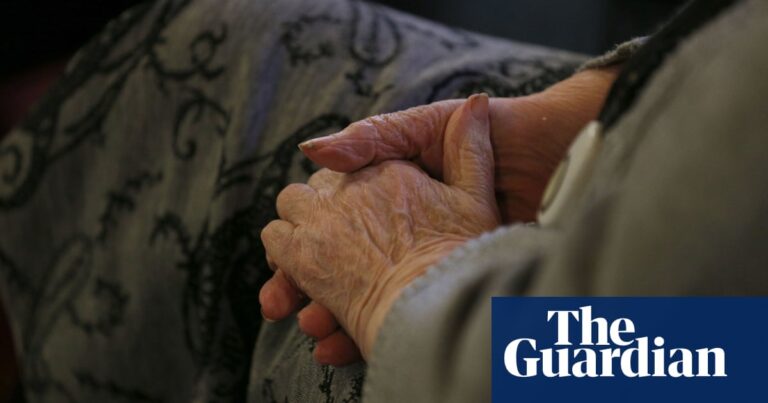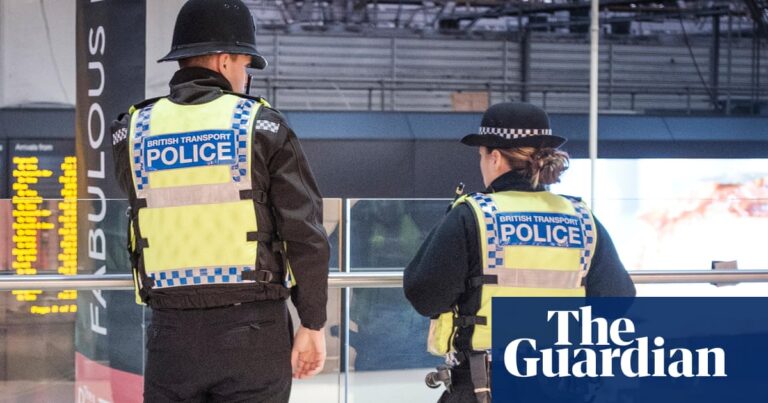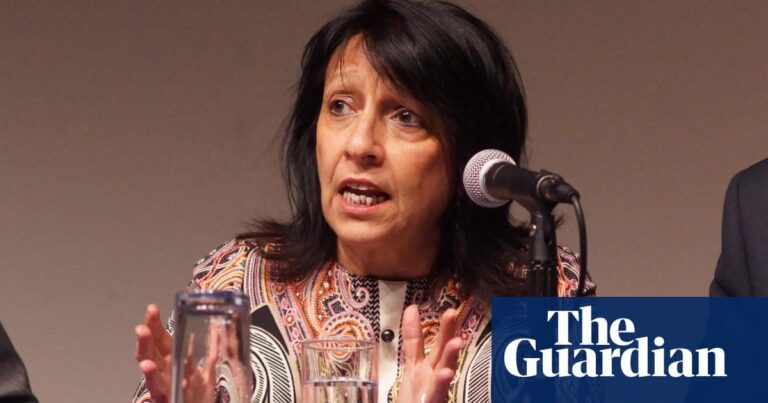For the first, rocket-fuelled years of his career, Jake Bugg used to be the youngest person in any room, be it the Mercury prize ceremony or The Graham Norton Show. This summer, it hit home: that was no longer the case.
Bugg was backstage at a festival, chatting with another band on the bill, when they informed him, with the casual brutality of youth, that they had listened to his music when they were at primary school. That was when Bugg realised he was now one of the grownups.
How did it feel? “Weird,” he says. “It just changed. I don’t mind,” he adds, “but when some kids say ‘primary school’, I’m like, all right, that’s a bit too far now.”
It’s a reckoning familiar to anyone who has been praised as a precocious talent – but for Bugg, his early success has cast a long shadow. He was 17 when he was selected to play the BBC Introducing stage at Glastonbury in 2011, leading him to sign with Mercury Records. His self-titled debut album, released the following year, was nominated for the Mercury prize and sold almost 900,000 copies, driven by the success of the single Lightning Bolt; it was the 57th-bestselling album of the 2010s. Bugg remains the youngest male artist to debut at No 1 in the UK album charts. He only turned 30 in February.
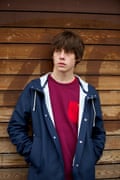
Bugg is on record as disliking interviews, but when we meet at a pub in London I find him shy but game to get stuck in. It’s 2pm and he hasn’t had lunch yet, but Bugg goes straight for a pint. Not long ago, he was at this same pub for a signing, but he waves away my offer to relocate to a less conspicuous table. The only giveaway that this was once “Britain’s coolest boy” (Grazia magazine, 2013) is his all-black outfit, from the bomber jacket to the Givenchy trainers.
We are speaking three weeks out from Bugg’s sixth album, A Modern Day Distraction. “I can’t quite believe it’s the sixth,” he says. He seems apprehensive about how it will be received, after a decade of mixed reviews, and ground down by the machinations of the music industry.
“You’ve just got to keep going,” Bugg says. “Yes, there’s been times where I feel like I’m banging my head against a brick wall, but you’ve just got to push through it. And I’m happy that I have, in the last few years – because it’s not always been an upward trajectory for me.”
That may be the case, but he couldn’t have wished for a stronger start: Bugg went from playing Glastonbury’s Introducing stage in 2011 to its main Pyramid stage in 2013. His own festival highlight was in 2014, when he headlined the Other stage, clashing with Metallica – one of his favourite bands growing up.
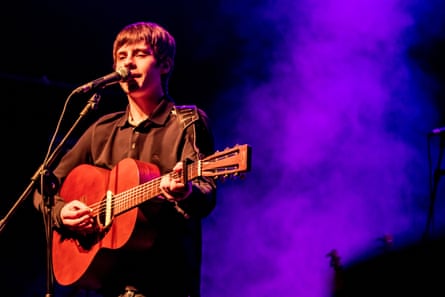
The sudden promotion “was definitely crazy”, Bugg says – but not dizzying. “They’re the moments you dream of, when you’re in bed and you’re 13 or 14 … I’d imagined it enough that when I did get to that moment, it was like: oh yep.”
Bugg grew up on the Clifton council estate in Nottingham with his mother and younger sister. His parents had separated when he was young, which he says led him to grow up fast: “Pick your sister up from school, do the dishes, do the laundry, make sure everything’s ready for when your mum comes back – I think it’s just something you naturally do. And that you have to do.”
Bugg’s own interests were football (he is a lifelong Notts County fan and, in latter years, a sponsor) and music. When he was 12, his uncle gave him a guitar and taught him some chords. By the time he was 14, he was reading articles online about how to make it in music; at 15, he was sharing his own songs on MySpace in the hope of being discovered.
Bugg loved learning about obscure 40s blues musicians and “every Jimi Hendrix story” ever written. But he did not flourish at school, and finished with “not exactly amazing” GCSEs. He enrolled in a music technology course, but dropped out at 16. He loves Nottingham, “but I wanted to see more of the world”.
It’s a sentiment familiar from his first album, in which Bugg yearns for escape from a world of drugs, violence and even (on Ballad of Mr Jones) murder. It is an especially dark picture of working-class life. “That’s what sometimes growing up in those places can be like,” Bugg says. Many of the songs were written with songwriter (and Snow Patrol collaborator) Iain Archer, who interviewed Bugg about his life and showed him how to set it to music. On Seen It All, he describes a party at a “local gangster’s house” that ends in a stabbing. That was true to his experience? “Absolutely.” It is “strange” to perform it now, with crowds of thousands singing along, he says. “But the truth is, a lot of people come from similar places, and have experienced similar things.”
Had he not been swept up into his dream career, “I don’t know which way life could have gone”, says Bugg. It’s a thought that continues to drive him. “Music’s given me a whole new life, better than I could have ever imagined, and I just feel a kind of responsibility to pay everything back. That’s why I’ve just never stopped, never really taken a break – it feels wrong to do so.”
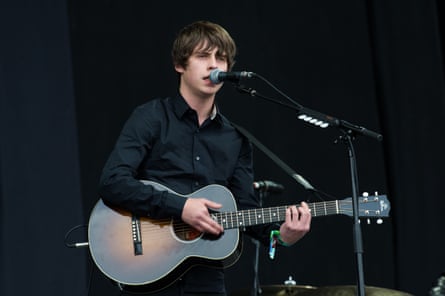
By his own admission, his wasn’t a new sound (“If you like Bob Dylan, try Jake Bugg,” suggested the New York Times) – but it also wasn’t like much else on the airwaves, with guitar music starting to give way to pop. “Timing is everything,” Bugg says. He describes Lightning Bolt – still his biggest single, along with Two Fingers – as a fluke. “It still blows my mind when I play it on stage every night, like: ‘This took 10 minutes to write. I can’t believe you all like it … What about this one, with more chords in it?’”
His songs were widely used in ads, from Greene King to Gatorade, while Trouble Town has become known as the theme for the BBC TV series Happy Valley. But Bugg, too, became a name and even a heartthrob, briefly “romantically linked” to model Cara Delevingne.
A few weeks shy of his 19th birthday, Bugg was picked up by Burberry, performing at the brand’s flagship store opening and pictured at its catwalk show. The following year, in 2014, he found himself on Graham Norton’s sofa with Sylvester Stallone and Robert De Niro.
After the show Stallone stuck around, telling stories, Bugg says. “That was pretty bizarre. Playing on the stage is one thing, but being around A-listers like that … then it’s just me on the end of the couch, like: what’s going on?”
It fostered some impostor syndrome, he says. Bugg describes himself as reserved and shy, but says his social anxiety and distrust could come across as “a bit moody” and even rude when he was younger. “There was a lot of negativity in life, which is why I grew up quite angry and frustrated.”
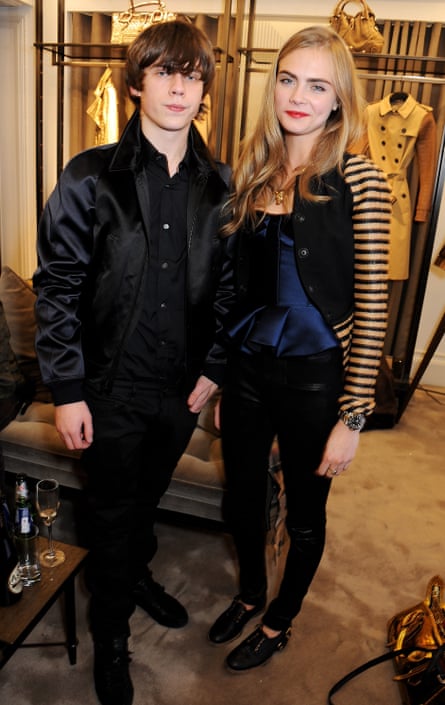
Having been lauded as an “authentic” working-class voice, Bugg struggled to express himself in a world he saw as decidedly inauthentic. He recalls being on a red carpet, speaking with an interviewer who kept looking over his shoulder for a bigger star: “It’s just not very genuine.”
His relationship with Delevingne was overstated, Bugg says now (as he said at the time) – but it provoked paparazzi attention nonetheless. “It’s funny: people tell you, ‘Just be grateful for the press, because you might not have it all the time.’”
Young Bugg also became known as a bit of a stirrer, mouthing off about Mumford & Sons (“posh farmers with banjos”) and One Direction (“[they] must know they’re terrible”). His points – albeit “delivered in an incredibly poor way” – were about the music industry, and the superficial direction it was heading, Bugg says now. “I think I had an obsession with being authentic … I was kind of critical – but it just made me look like more of a fool than anything.”
He’d grown up an old soul, listening to Donovan and Don McLean, and “hating what was on the radio”. These days – he adds, self-mockingly – he finds himself wistful for the pop of 2014: “It was better than it is now.” Likewise, he now says he’d “rather do an interview than a TikTok”. (He has refused to sign up to the platform.)
He bemoans the myopic focus on metrics, data and internal politics, forcing today’s artists to jostle for promotion. “I think it’s really sad, for up-and-coming acts – they’re having to spend more time focusing on the content than they are the actual art.”
He doubts that he would enjoy the same success with his debut album were it released today. “I didn’t have anything like a social media following, and that’s what everything gets based on. It’s even harder now, especially for working-class people, to get on the radio.” Many of the community resources for recording and performing that Bugg benefited from have since been shut down, he says.
Equally, none of his subsequent releases have matched the critical or commercial performance of his debut (rereleased, in 2022, for its 10th anniversary) – perhaps not helped by their inconsistent styles. Having made the follow-up, Shangri La, with super-producer Rick Rubin at his Malibu studio, Bugg returned to his roots for 2016’s On My One, titled for a Nottingham dictum – and even attempted to rap, on Ain’t No Rhyme. (“It wasn’t until after it came out that I was like, ‘Why did I do that?’” says Bugg, ruefully.) For his fourth album, Hearts That Strain, he made a “Nashville record” with the Black Keys’ Dan Auerbach.
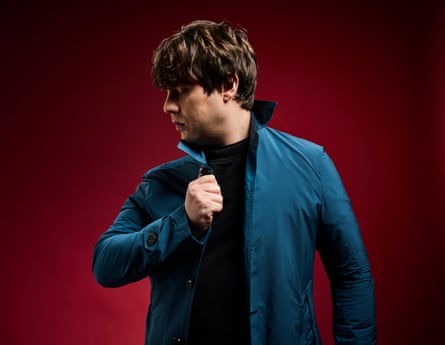
Bugg says that he was searching, driven by the fear of being “put in a box” and held to the sound of his debut. “I could sense that was happening, and sometimes I can be quite contrary,” he says. “I just wanted to shift it all, to give myself that room so that people don’t know what’s coming next.”
Not all the experiments paid off, Bugg admits. But “you’re damned if you do, damned if you don’t: if you’re not seen to be trying to extend yourself musically, then you can seem a one-trick pony”.
The stakes have only got higher with each release. “You’ve got to try and keep people’s attention, and that can be incredibly difficult,” Bugg says. “Especially when you’re not the new artist any more, and it feels more about survival. You’ve always got to prove yourself.”
In 2021, Saturday Night, Sunday Morning – Bugg’s poppier fifth album, and his first on Sony’s RCA label – was framed as a career reset, and gave rise to his biggest single in years, All I Need. But behind the scenes, Bugg says, “I was probably the most anxious I’ve ever been”.
He started having panic attacks before performing. His looming 30th birthday didn’t help quell the existential crisis – but by the time it came around this February, he’d refocused. “It’s always very difficult,” he says of managing the peaks and troughs – of his career, and his mental health. “But you just try and control the things only you can control.”
That was Bugg’s attitude to making his new album, A Modern Day Distraction. While he is inclined to criticise his previous efforts as patchy or rushed, this one was sweated by a single team, in a single studio – and without any fear of “too much guitar – I think I played to my strengths a bit more”.
That extends to subject matter. For many years, Bugg says, he “didn’t feel comfortable” revisiting the themes of his debut: “I wasn’t living that life any more.” (These days he lives in Kensington, and in 2021 made Heat magazine’s list of Richest Stars 30 & Under, being valued at £6.1m.) “I felt like in some way it would have been dishonest, to try and continue with that thread, when I wasn’t actually any part of it.”
On this album, Bugg takes a more observational perspective, commenting on ordinary Britons’ struggles without claiming to share them himself. The single Zombieland describes the vicious cycle of poverty, with a man working around the clock to keep afloat. Bugg describes it as a loose concept album about life under austerity, inspired by conversations with friends and family. “It feels like a lot of people are working to live, pretty much, and it’s hard not to feel guilty when I get to do the thing that I love for a living,” he says.
Coming home to his west London pad, amid the “greenery and nice white buildings”, never gets familiar, he says. His family remains in Nottingham and, in recent years, he has spent more time there. “I never really felt like I belonged where I grew up,” he says, “but I know I definitely don’t belong where I live now.”
He has never had therapy, calling it an “American thing”. (“Music’s the therapy – there’s the cliche for you.”) But he has managed to find some peace with himself, and his place in the world. “To be honest, I’m quite proud of the record, and I would like it to do well,” he says. “But if it doesn’t, I think I can still say to myself, I made a good album, and I feel like I’ve found the right track again. I think I can take comfort in that.”
Jake Bugg’s new album, A Modern Day Distraction, is out on 4 October on RCA. His UK headline tour starts in Leeds on 8 November
Source: theguardian.com





